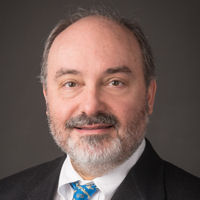Oncology
The Discipline
Medical oncology is the internal medicine subspecialty which involves the diagnosis and management of benign and malignant neoplasms. Internal medicine physicians practicing oncology ("oncologists") typically assist general internal medicine physicians and other physicians in identifying individuals at risk for malignancy and investigating clinical symptoms and syndromes suggestive of underlying cancer. In patients with a diagnosed neoplasm, oncologists frequently undertake the care of patients with solid and hematologic tumors to attempt a cure or to prolong life and/or palliate symptoms.
Oncologists may practice in a dedicated oncology group, managing patients along with other physicians. Many oncologists provide consultative services to both other physicians and medical institutions. Oncologists, particularly those in academic settings, may engage in basic science and clinical research and teach medical students and residents.
Oncology is frequently coupled with training in hematology in a combined hematology-oncology fellowship program. This dual training prepares an internal medicine physician to diagnose, treat, and manage a wide range of related diseases.
Training
Medical oncology fellowship training requires two years of accredited training beyond completion of a basic internal medicine residency, while dual certification in hematology and medical oncology requires three years of combined fellowship training.
Following completion of fellowship training in oncology, trainees are eligible for certification in oncology by the American Board of Internal Medicine.
Major Professional Societies
- American Society of Clinical Oncology

Perry Guaglianone, MD, FACP

